9 Best Home Remedies For Flaky Skin And Prevention Tips
Smart tips with natural ingredients to tackle issues pertaining to dry and damaged skin

Image: iStock
When it is ripped off of its natural oils or becomes very dry, flaky skin on the face starts appearing, which is far from pleasing. However, you can try basic home remedies for flaky skin to make your skin smooth and hydrated again. If left untreated, the dead cells accumulate on the skin surface and affect its texture, making it rough and bumpy. You may also end up with itchy, red, and irritated skin. Flaky skin on the scalp leads to dandruff. So, do not neglect dry and flaky skin as these issues can later lead to bigger skin problems. Scroll down to check out some home remedies to improve flaky or scaly skin.

In This Article
What Does Flaky Skin Mean?
Flaky or peeling skin is the result of unintended damage to the surface of your skin that causes the loss of its upper layer.
Healthy skin should have 10-20% water content. Flaky skin occurs when the natural oils produced by your skin begins to dry up and cause it to dehydrate in the process. This results in dry skin losing water 75 times more than normal skin, thereby causing the outermost layer of your skin to flake and peel away, making it sensitive.
Knowing you have flaky skin is the first step towards treating it. But how do you know you have it? Understanding its symptoms can help.
Key Takeaways
- Flaky skin occurs due to surface skin damage caused by hormonal issues, environmental conditions, skin conditions, infections, allergies, and harsh skin products.
- Aloe vera has skin-soothing properties that make it effective in managing flaky skin.
- Use jojoba oil, olive oil, coconut oil, essential oils, honey, and Vaseline as moisturizers to treat dry skin.
- Drink enough water daily, avoid hot showers and smoking, and limit alcohol consumption to improve skin health.
Flaky Skin Symptoms
More often than not, flaky skin symptoms manifest as dry, dehydrated skin or could signal an underlying skin condition. However, understanding the cause and symptoms behind dehydrated skin can allow you to figure out whether you have flaky skin or not and direct you toward suitable remedies. Some of the common symptoms include:
- Roughness and heightened sensitivity that causes the skin to become unusually sensitive to irritants
- Skin dryness and tightness where skin often forms small, dry, white, or translucent flakes
- Mild to severe skin flaking that results in an ashy appearance
- Itchiness
- Scaling or peeling
- Red or inflamed skin caused by excessive scratching
- Fine lines
- Skin cracking and bleeding, in severe cases
Let us now dig a little deeper into what could actually be causing your skin’s oil and water content to dry up.
What Causes Flaky Skin?
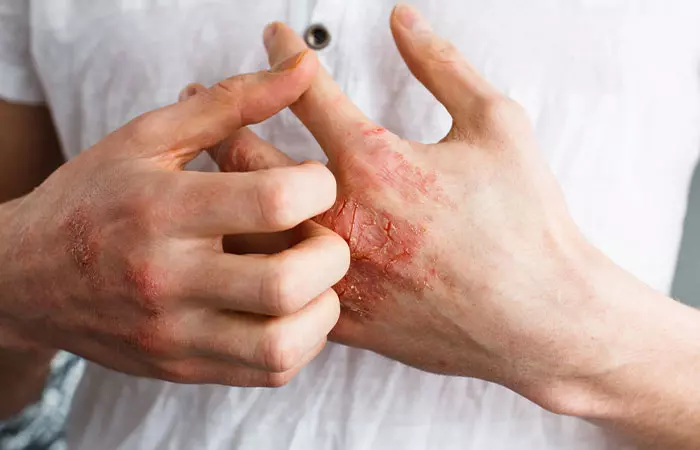
A number of factors can contribute to the development of flaky skin. Some underlying diseases or conditions can also cause flaky and itchy skin. They are:
- Allergies including skin rash and redness
- Staph or fungal infections
- An immune system disorder
- Cancer
- Genetic diseases like acral peeling skin syndromei A condition that causes the skin from the hands and legs to peel off painlessly as a result of genetic mutations.
- Athletes foot
- Eczema
- Dermatitis
- Psoriasis
- Ringworm
- Environmental changes like changing place or temperature
- Hormonal changes
In a study conducted on 48,630 individuals, 29.4% of participants reported having dry skin. Most common skin conditions noted for dry, flaky skin include atopic dermatitis, eczema, and psoriasis. Dry, flaky skin is a very common condition and needs special attention, so try the remedies given to manage dry and flaky skin better.
Other factors that can contribute to flaky skin are:
- Cold weather
- Forced-air heat
- Lack of humidity
- Cancer treatments like radiation therapy
- Certain topical medications like retinoids
- Hot baths
- Heated pools
- Harsh skin cleansers
Irrespective of the cause, you can try out any of the home remedies listed below to treat flaky skin.
Home Remedies To Treat Flaky Skin
Natural home remedies offer a gentle and effective approach to treating flaky skin. These remedies often utilize readily available ingredients and are quite cost-effective. These ingredients, which are likely already in your kitchen, are known to have powerful moisturizing properties.
By incorporating these natural solutions into your skincare routine, you can restore moisture, soothe irritation, and improve the overall health of your skin. To address flaky skin on your face instantly, you can try the following home remedies:
- Coconut oil
- Essential Oils
- Honey
- Olive Oil
- Aloe Vera
- Vaseline
- Apple Cider Vinegar
- Jojoba Oil
- Ceramide and Squalene Based Moisturizers
Natural Remedies To Treat Flaky Skin
1. Coconut Oil
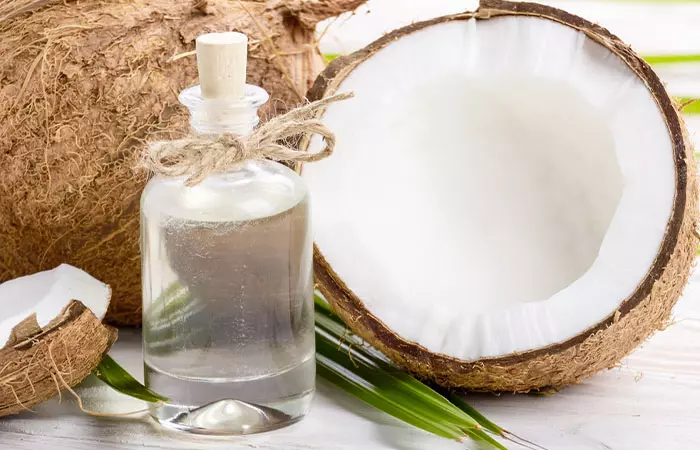
You Will Need
1 tablespoon of coconut oil
What You Have To Do
- Warm a tablespoon of coconut oil.
- Rub the oil between your palms and apply it gently all over your face.
- You can also apply this oil to other affected areas.
How Often You Should Do This
Do this twice daily for best results.
Why This Works
Coconut oil
can help improve the hydration levels of your skin and also acts as a natural emollient (1). This can prevent your skin from peeling further and can also treat the existing flakes.
Note: Do not use it on acne-prone skin.
Rob Stuart, a holistic health expert, explains how he used coconut oil to treat eczema and itching. He recommends washing your face with warm water and then applying coconut oil daily with gentle exfoliation twice a day. He explains, “The hot water allows the coconut oil to seep deep in and the hot water mixed with the coconut oil will seep the water deep in, and hold the moisture in, thus working really well (i).
 Quick Tip
Quick Tip2. Essential Oils
a. Tea Tree Oil
You Will Need
- 3-4 drops of tea tree oil
- 1 teaspoon of coconut oil
What You Have To Do
- Add three to four drops of tea tree oil to a teaspoon of coconut oil.
- Mix well and apply it all over the affected area.
- Leave it on until it dries completely.
How Often You Should Do This
You can do this 1 to 2 times daily.
Note: Always mix essential oil with carrier oil because essential oils are highly potent and concentrated and can cause an allergic reaction.
Why This Works
The anti-inflammatory properties of tea tree oil can help soothe skin conditions like eczema that could be responsible for causing your skin to flake
(2).
3. Honey
You Will Need
½ tablespoon of honey
What You Have To Do
- Take half a tablespoon of honey.
- Apply it evenly to the affected skin.
- Leave it on for 20 to 30 minutes before washing it off.
How Often You Should Do This
Do this twice daily.
Why This Works
Honey exhibits soothing and emollient effects that can help in treating flaky skin.
It is also widely used in creams and other formulations to treat various skin conditions like dermatitis and psoriasisi A skin disease that causes a rash with itchy, scaly patches, most commonly on the knees, elbows, trunk, and scalp. that are known to trigger flaky skin (3).
4. Olive Oil
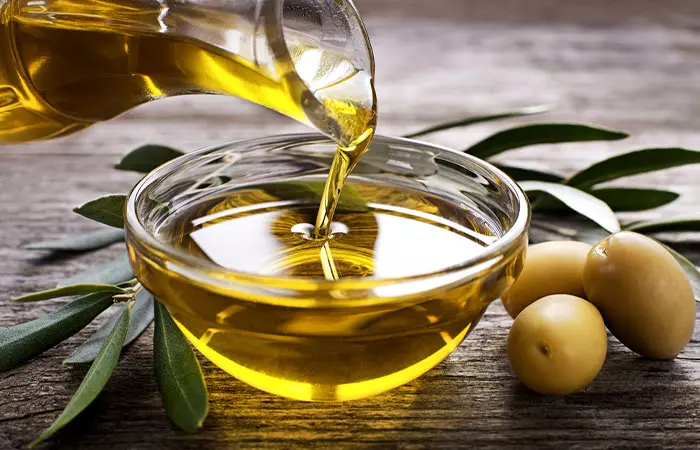
You Will Need
Olive oil (as required)
What You Have To Do
- Take a little olive oil in your palms.
- Apply it evenly all over your face.
- You can also apply olive oil to other affected areas.
How Often You Should Do This
You can do this once daily, preferably before bedtime.
Why This Works
Like coconut oil, olive oil also does a wonderful job of keeping your skin moisturized because it contains phenols that exhibit skin barrier repair effects
(4). Hence, olive oil can help heal flaky skin.
5. Aloe Vera
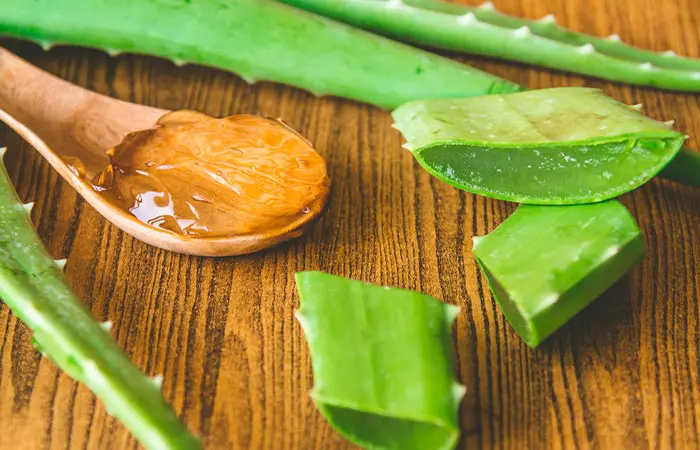
You Will Need
Fresh aloe vera gel (as required)
What You Have To Do
- Take a little aloe vera gel and apply it all over your face.
- You can also apply it to the other affected areas in an even layer.
- Leave it on for 20-30 minutes before rinsing it off.
How Often You Should Do This
Do this once daily.
Why This Works
Aloe vera is a popular remedy used to treat many skin conditions. Its anti-inflammatory and moisturizing properties can treat flaky skin and as well as the inflammatory skin conditions that could be causing it (6).
6. Vaseline (Petroleum Jelly)
You Will Need
Vaseline (as required)
What You Have To Do
- Apply a very thin layer of Vaseline to the affected areas.
- Leave it on overnight or until it dries completely.
- Reapply as necessary.
How Often You Should Do This
You can do this multiple times daily as per your requirement until your skin heals completely.
Why This Works
Vaseline has excellent moisturizing properties and can form a protective layer on your skin (7). This can help treat dry and flaky skin.
7. Apple Cider Vinegar
Apple cider vinegar contains acetic acid. The pH-balancing properties of acetic acid can help treat dry, flaky, and inflamed skin (8).
You Will Need
- 1 teaspoon of apple cider vinegar
- 8 teaspoons of water
- Cotton pads
What You Have To Do
- Mix a teaspoon of apple cider vinegar with eight teaspoons of water.
- Soak a cotton pad in this mixture and apply it all over your face.
- Leave it on for 15-20 minutes and rinse it off with water.
How Often You Should Do This
Do this once daily.
Why This Works
The pH balancing properties of apple cider vinegar can help alleviate symptoms of dry, flaky, and inflamed skin.
8. Jojoba Oil

You Will Need
Jojoba oil (as required)
What You Have To Do
- Take some jojoba oil in your palms.
- Apply a thin, even layer on your face and other affected areas.
- Leave it on until it dries completely.
How Often You Should Do This
You can do this 1 to 2 times daily.
Why This Works
Jojoba oil possesses multiple benefits when it comes to skincare. From helping in the treatment of inflammatory skin conditions to acting as a moisturizer, jojoba oil does it all (9). Thus, it is an excellent remedy for flaky skin.
You can also follow these tips to protect your skin from flaking further.
9. Moisturizers With Ceramides Or Squalene Oil
You Will Need
Moisturizer containing ceramides or squalene oil
What You Have To Do
- Clean your face and pat it dry gently.
- Apply the moisturizer with the tips of your fingers evenly on the skin.
How Often You Should Do This
Apply it to clean and washed skin twice a day. This will heal your chapped skin and prevent further cracking.
Why This Works
Ceramides and squalene are a part of our skin’s natural moisturizing factors. Using creams or lotions with these helps repair the weak skin barrier and reduce the skin flaking (10), (11).
 Quick Tip
Quick TipPrevention Tips
- Use a gentle cleanser to cleanse your face.
- Exfoliate your skin regularly.
- Keep your skin moisturized.
- Drink enough water to keep your skin hydrated.
- Quit smoking tobacco.
- Limit alcohol intake.
- Wear a scarf to protect your face in extreme climates.
- Avoid taking hot baths. Instead, opt for lukewarm baths.
- Always use sunscreen.
Infographic: 5 Easy Home Remedies For Flaky Skin
Dealing with dry and flaky skin can be a difficult task. You have to deal with itchiness, redness, rough and patchy skin, not to mention the continuous shedding of the dry skin layer. If you need some help in managing the condition, check out the infographic below for 5 simple home remedies.

Illustration: StyleCraze Design Team
Flaky or peeling skin on your face develops when the oils in your skin start drying up and leave your skin dehydrated and dull. Cold weather, medications, cosmetic products, and medical treatments may lead to itchy and dry skin. Flaky or scaly skin may also be a sign of underlying medical conditions such as eczema, psoriasis, ringwormi A contagious fungal infection affecting the scalp or other skin areas causing a round, red, scaly lesion. , or infection. Knowing the scaly skin causes and treatment options can help you determine the right course of action. For example, applying natural ingredients to your face such as coconut oil, honey, yogurt, or vaseline once a day are some of the home remedies for flaky skin. Taking simple steps such as exfoliating regularly, staying hydrated, and limiting alcohol intake can prevent your skin from flaking.
Frequently Asked Questions
How long does it take for flaky skin to heal?
If you follow your treatment regimen regularly, you will notice an improvement in your skin in just a couple of days. If there is no improvement in your symptoms, consult your doctor immediately.
What does it mean when your skin starts to peel?
Your skin can start peeling for a number of reasons. Certain skin conditions, infections, or even an immune system disorder could be causing your skin to peel.
What is the best moisturizer for dry, flaky skin on the face?
There are many excellent moisturizers in the market like Cetaphil and Aveeno. However, if you are looking for natural alternatives, any of the above remedies will do the trick.
Can stress make your skin dry?
Yes, stress can disrupt the skin barrier function which can lead to inflammation and flaky skin (12). This can exacerbate the symptoms of various skin conditions like psoriasis and rosacea (13).
What causes flaky skin in the elderly?
Studies indicate that aging causes a decrease in blood supply and nutrients to the skin and reduced lipid production. This process weakens the skin barrier, leading to flaky skin in the elderly (14).
Dry, flaky skin on the face can be uncomfortable and embarrassing. Watch the video below to learn the causes of dry skin along with the treatments, routine, and diet tips to manage this condition from a certified expert. Check it out now!
Personal Experience: Source
StyleCraze's articles are interwoven with authentic personal narratives that provide depth and resonance to our content. Below are the sources of the personal accounts referenced in this article.
i. how I CURED ECZEMA / DERMATITIS washing my face with COCONUT OILhttps://www.youtube.com/watch?v=noOES0wWWDo
References
Articles on StyleCraze are backed by verified information from peer-reviewed and academic research papers, reputed organizations, research institutions, and medical associations to ensure accuracy and relevance. Read our editorial policy to learn more.
- A randomized double-blind controlled trial comparing extra virgin coconut oil with mineral oil as a moisturizer for mild to moderate xerosis, Dermatitis, US National Library of Medicine, National Institutes of Health.
https://pubmed.ncbi.nlm.nih.gov/15724344/ - Melaleuca alternifolia (Tea Tree) oil: a review of antimicrobial and other medicinal properties, Clinical Microbiology Reviews, US National Library of Medicine, National Institutes of Health.
https://pubmed.ncbi.nlm.nih.gov/16418522// - Honey in dermatology and skin care: a review, Journal of Cosmetic Dermatology, US National Library of Medicine.
https://pubmed.ncbi.nlm.nih.gov/24305429/ - Anti-Inflammatory and Skin Barrier Repair Effects of Topical Application of Some Plant Oils, International Journal of Molecular Sciences, US National Library of Medicine, National Institutes of Health.
https://www.ncbi.nlm.nih.gov/pmc/articles/PMC5796020/ - Effects of Turmeric (Curcuma longa) on Skin Health: A Systematic Review of the Clinical Evidence, Phytotherapy Research, US National Library of Medicine, National Institutes of Health.
https://pubmed.ncbi.nlm.nih.gov/27213821/ - ALOE VERA: A SHORT REVIEW, Indian Journal of Dermatology, US National Library of Medicine, National Institutes of Health.
https://www.ncbi.nlm.nih.gov/pmc/articles/PMC2763764/ - Skin care in the aging female: myths and truths, The Journal of Clinical Investigation, US National Library of Medicine, National Institutes of Health.
https://www.ncbi.nlm.nih.gov/pmc/articles/PMC3266803/ - Acetic acid, PubChem, U.S. National Library of Medicine, National Center for Biotechnology Information.
https://pubchem.ncbi.nlm.nih.gov/compound/Acetic-acid - Jojoba in dermatology: a succinct review, Giornale Italiano di Dermatologia e Venereologia, US National Library of Medicine, National Institutes of Health.
https://pubmed.ncbi.nlm.nih.gov/24442052/ - Skin hydration is significantly increased by a cream formulated to mimic the skin’s own natural moisturizing systems, US National Library of Medicine, National Institutes of Health.
https://www.ncbi.nlm.nih.gov/pmc/articles/PMC6197824/ - Moisturizers: The Slippery Road, US National Library of Medicine, National Institutes of Health.
https://www.ncbi.nlm.nih.gov/pmc/articles/PMC4885180/ - Brain-Skin Connection: Stress, Inflammation and Skin Aging, US National Library of Medicine, National Institutes of Health.
https://www.ncbi.nlm.nih.gov/pmc/articles/PMC4082169/ - Stress and the skin, PubMed
https://pubmed.ncbi.nlm.nih.gov/20467395/ - Dry Skin in Older Adults, Research Gate
https://www.researchgate.net/publication/51154945_Dry_Skin_in_Older_Adults
Read full bio of Dr. Saloni Vora-Gala
Read full bio of Shaheen Naser
Read full bio of Anjali Sayee
Read full bio of Monomita Chakraborty






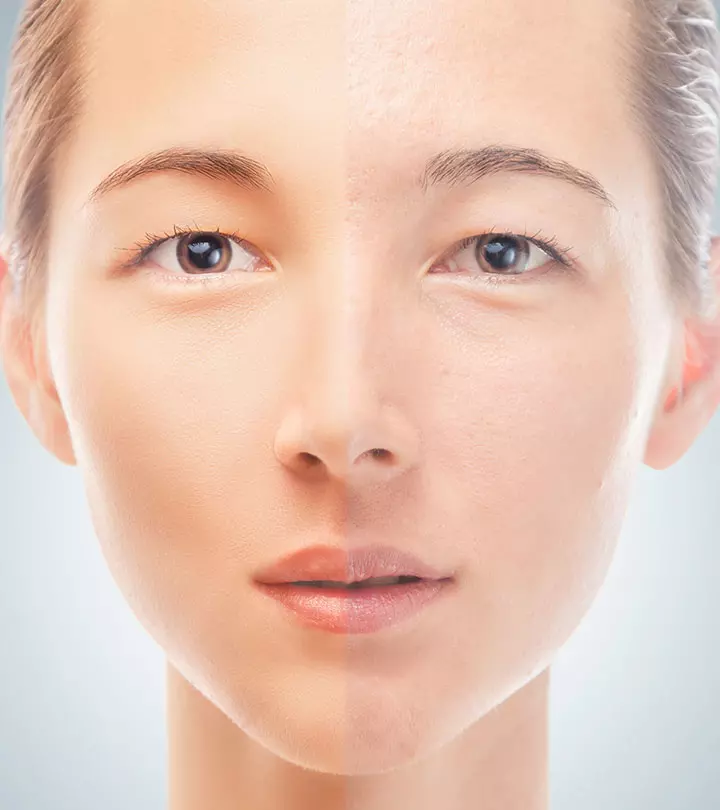





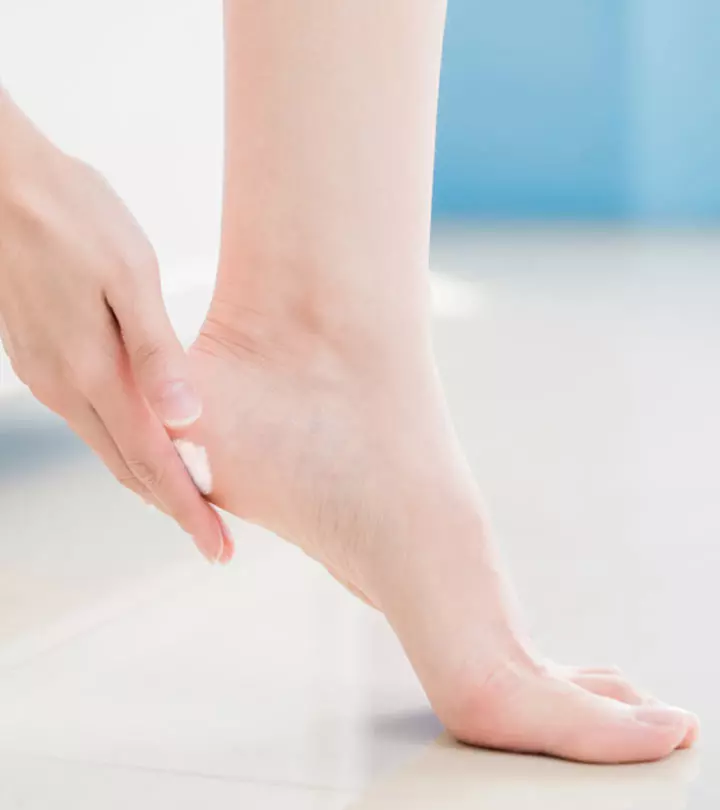














Community Experiences
Join the conversation and become a part of our empowering community! Share your stories, experiences, and insights to connect with other beauty, lifestyle, and health enthusiasts.